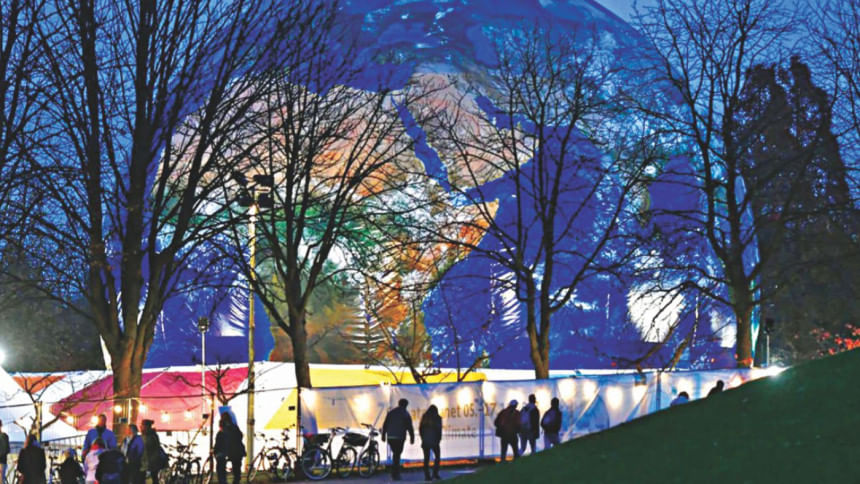Fiji and Poland launch Talanoa Dialogue at COP23

The 23rd Conference of Parties (COP23) of the United Nations Framework Convention on Climate Change (UNFCCC) ended in Bonn, Germany, on Saturday morning, as negotiations ran overtime by a day. While the event was held in Germany, the official host of COP23 was in fact Fiji, and the President of the COP was the Prime Minister of Fiji himself. This was the first time that a small island developing state had hosted a COP and this made a significant difference to the atmosphere in Bonn.
In COP21 held in France in December two years ago, the historic Paris Agreement was agreed upon committing all countries to take action on both mitigation as well as adaptation and to keep global temperature increase well below two degrees centigrade and, if possible, below 1.5 degrees. The Paris Agreement also set a timetable for having a stocktake of progress by COP24, which will be held in Poland in December next year.
This COP in Bonn was meant to start the process of developing the rule book for implementing the Paris Agreement and initiate the process for the Facilitated Dialogue due to take place in Poland next year. Thus, Fiji introduced the countries to their "Talanoa Dialogue" concept that is used by the islanders in the Pacific to arrive at decisions through consensus, not by adversarial negotiations between groups (which is typically how countries behave at the COPs) but rather by allowing everyone to have a say and reaching consensus through a participatory and inclusive process.
It was in this spirit that Fiji together with Poland launched the Talanoa Dialogue at COP23 which will continue all through the year, rather than waiting until COP24 next year, to consult not just with governments, but also with many other constituencies.
COP23 also came out with two important decisions to ensure better representation at the COPs, namely a Gender Action Plan to involve more women as well as recognising local governments and indigenous peoples' groups. The inclusions of these groups will broaden the decision-making process and make it more inclusive from now on.
During the official negotiations in Bonn the most contentious issue, as always, was about finance. But this time it was about finance for compensation to the victims suffering loss and damage from climate change. Under Fiji's leadership the vulnerable countries, including Bangladesh, pushed strongly for developing innovative funding sources for loss and damage. In the end we won a partial victory with the developed countries, led by Germany, agreeing to provide insurance against loss and damage for 400 million poor people. While this is indeed to be welcomed, it will not be enough and insurance is unlikely to reach the poorest and most vulnerable people whose need is the greatest. So, this issue will continue into future COPs.
Another aspect of COP23 that everyone was curious about was what the US would do since President Trump has officially written to the UNFCCC that the US will withdraw from the Paris Agreement (but not from the UNFCCC itself). As the rules of the Paris Agreement require a country to remain in for two more years before they are officially out, the US State Department did indeed send some relatively low-level officials to be part of the negotiations but they remained low-key. They also sent some officials from the White House in the high-level segment who held an event to try to boost the use of "clean coal". But they were booed and heckled by the audience.
On the other hand, the non-government sector from the US set up their own Climate Action Pavilion where there was a new constituency speaking every day about how the people of the US are still in the Paris Agreement even if their President wasn't. These included governors of major states including California, mayors of hundreds of cities, heads of major companies including Walmart, heads of NGOs and universities and individuals including Al Gore and Arnold Schwarzenegger, all saying that they would fulfil their obligations under the Paris Agreement. As a result, the US is actually on course to fulfil the mitigation pledges made by President Obama in Paris despite attempts by President Trump to reverse all Obama policies.
As a result, the global leadership on tackling climate change has now moved to China, as well as many other coalitions of the willing, including many sub-national states and cities who are taking actions to implement the Paris Agreement on the ground.
This dichotomy between the official government negotiators and the non-governmental implementers was vividly illustrated in Bonn by the two separate venues where these two groups were housed. The venue for the negotiators was the official conference venue with very little natural lighting and most of the negotiations taking place behind closed doors where observers just sat around waiting for the negotiators to emerge. The venue for NGOs and others was set up in a park where there were lots of cafes, many pavilions, booths with information, meeting rooms for side events and a stage for the Talanoa dialogues to take place amongst civil society members. This venue was buzzing with excitement, discussions, music and even dancing while the official negotiators remained locked inside windowless rooms arguing about commas and words!
In many ways this embodies the shift since we adopted the Paris Agreement, in the relative importance between the official negotiators and the actual implementers with the latter being more important than the former from now on.
Saleemul Huq is Director, International Centre for Climate Change and Development at the Independent University, Bangladesh.
Email: [email protected]

 For all latest news, follow The Daily Star's Google News channel.
For all latest news, follow The Daily Star's Google News channel. 








Comments